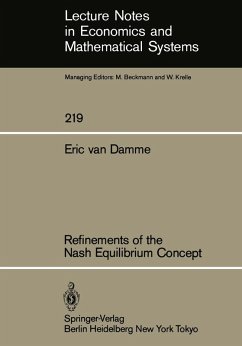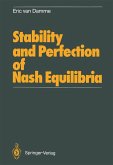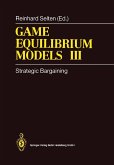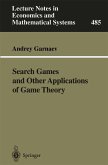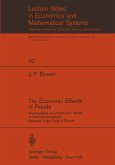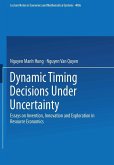In this monograph, noncooperative games are studied. Since in a noncooperative game binding agreements are not possible, the solution of such a game has to be self enforcing, i. e. a Nash equilibrium (NASH [1950,1951J). In general, however, a game may possess many equilibria and so the problem arises which one of these should be chosen as the solution. It was first pointed out explicitly in SELTEN [1965J that I not all Nash equilibria of an extensive form game are qualified to be selected as the solution, since an equilibrium may prescribe irrational behavior at unreached parts of the game tree. Moreover, also for normal form games not all Nash equilibria are eligible, since an equilibrium need not be robust with respect to slight perturba tions in the data of the game. These observations lead to the conclusion that the Nash equilibrium concept has to be refined in order to obtain sensible solutions for every game. In the monograph, various refinements of the Nash equilibrium concept are studied. Some of these have been proposed in the literature, but others are presented here for the first time. The objective is to study the relations between these refine ments;to derive characterizations and to discuss the underlying assumptions. The greater part of the monograph (the chapters 2-5) is devoted to the study of normal form games. Extensive form games are considered in chapter 6.
Dieser Download kann aus rechtlichen Gründen nur mit Rechnungsadresse in A, B, BG, CY, CZ, D, DK, EW, E, FIN, F, GR, HR, H, IRL, I, LT, L, LR, M, NL, PL, P, R, S, SLO, SK ausgeliefert werden.

